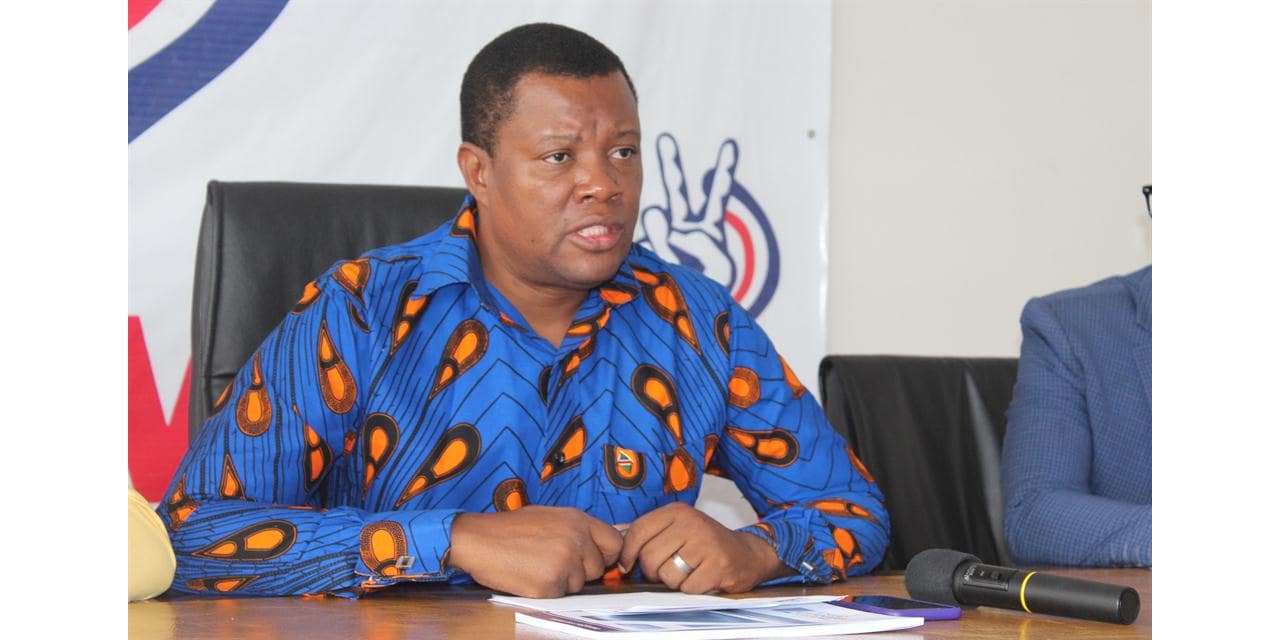Stefanus Nashama
The leader of the official opposition in the Namibian Parliament, McHenry Venaani, blamed the government for failing to complete more than 43 capital projects.
He said for the government to abandon such huge and crucial capital projects, represents gross mismanagement which is a severe blow to the Namibian Nation’s progress and ability to address the pressing needs of the people.
According to him, the backlog of incomplete projects in the health, housing, education, and agriculture sectors is a sign of the government’s failure to prioritize the well-being of citizens.
This follows a recent media report by the Ministry of Works and Transport that more than 43 government capital projects have been abandoned with hospitals, schools, and houses among the delayed projects worth an estimated value of N$990 million.
The report revealed that projects have been left incomplete due to a lack of proper contract management, cash-flow problems, and awarding tenders to contractors without the necessary technical capacity.
In response, the Ministry of Works and Transport’s Spokesperson, Julius Ngweda, yesterday said the incomplete of the said capital projects is not the failure of the government at all. He explained that the projects were given to contractors who are supposed to do the work on time, as per the contracts they signed with the government.
Ngweda alluded that all the reported abandoned capital projects were given to local contractors that eventually disappointed the government by failing to complete the projects, therefore, contractors are the ones to be held accountable.
“non of those projects were not given to international contractors, all were given to Namibian contractors. But the truth is when projects are given to international contractors they always complete the work on time. As a ministry, we had never had a problem with international contractors. Vennani as a lawmaker should ask himself why international contractors complete the work while our Namibian contractors leave the work incomplete,” he stressed.
He further stressed that there is nothing to blame the government at all because the ministry even gives training to contractors before embarking on the projects, and also reappoints contractors if they fail to do the work.Ngweda said local contractors spend money on unnecessary things after they receive their first payments, instead of concentrating on the completion of the projects.
“Namibian contractors should appreciate what the government is doing for them. They should respect the contracts they signed with the government, and deliver on the projects as expected to avoid disappointing the government,” he advised.
He urged local contractors to respect contracts and complete the work on time.
However, Venaani believed the government has failed to deliver on these projects and its failure should be corrected.
“With these projects left in limbo, we witness the dire consequences on the ground,” he stated.
Venaani mentioned that while the government is failing on projects, the healthcare system remains strained, lacking essential facilities and equipment.
Housing shortages continue to burden many families, hindering their quality of life, he said.
He further noted that education infrastructure falls short of meeting the demands of the country’s growing population, and the agricultural sector struggles to reach its full potential, affecting food security and rural livelihoods.
According to Venaani the abandoned capital projects by the government have not only distressed the Namibian people but also result in the underspending of the Ministry’s allocated budget.
“The funds meant to uplift our nation and provide for its citizens’ needs have been squandered due to the government’s negligence. These unspent funds cannot be redirected to develop other planned facilities or projects, further deepening the crisis, he stressed. A source at the Ministry of Works and Transport yesterday said some of the contractors left incomplete work after receiving their first payments because they spend money on other things which makes them not be able to do the next level of the work.
Some contractors have just completely failed to complete the projects due to a lack of equipment and companies’ mismanagement, the source further said.
“It is not mainly the failure of the government or ministry, it is the failure of the contractors that could not finish the work on time due to whatever circumstances on the ground,” the source noted.
However, the source agreed with Venaani in terms of cash flow problems and awarding of tenders to contractors without the necessary technical capacity “The government has not released payments on time for the contractors to do the job in a given time, which forced them to leave work incomplete after receiving their first payments”.
To this, Ngweda said contractors are given their first payments after completing a certain stage of the work, as per the contracts they signed with the government.
Suggestion
Venaani is suggesting the government should put in place stringent measures to hold contractors accountable for their actions and prevent them from taking on projects beyond their expertise.
The ministry should conduct rigorous assessments of potential contractors’ technical capabilities and financial standing before awarding tenders, he suggested.
He further proposed the ministry invests in training programs and partnerships with educational institutions to enhance the technical capacity of local contractors.
Proper oversight and regular progress assessments should be conducted throughout the project lifecycle to ensure timely completion, Venaani submitted, adding that the ministry should seek advice and input from industry experts during project planning and execution to minimize risks and ensure successful outcomes.
He said the ministry should maintain transparency in its financial reporting to enable public scrutiny and ensure accountability.
Venaani has since urged the government to act swiftly to rectify its mistakes and demonstrate its commitment to completing the reported essential projects for the betterment of the Namibian nation.




